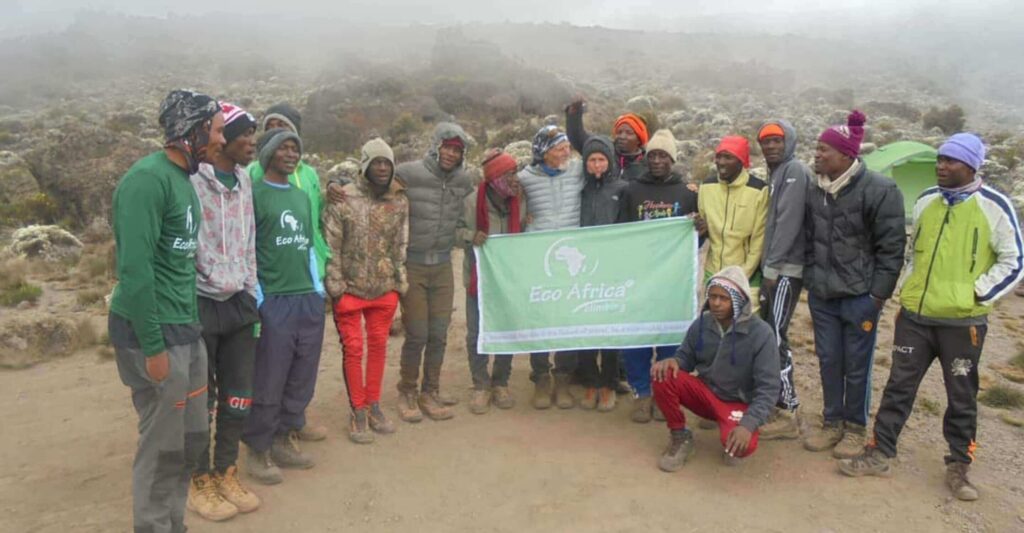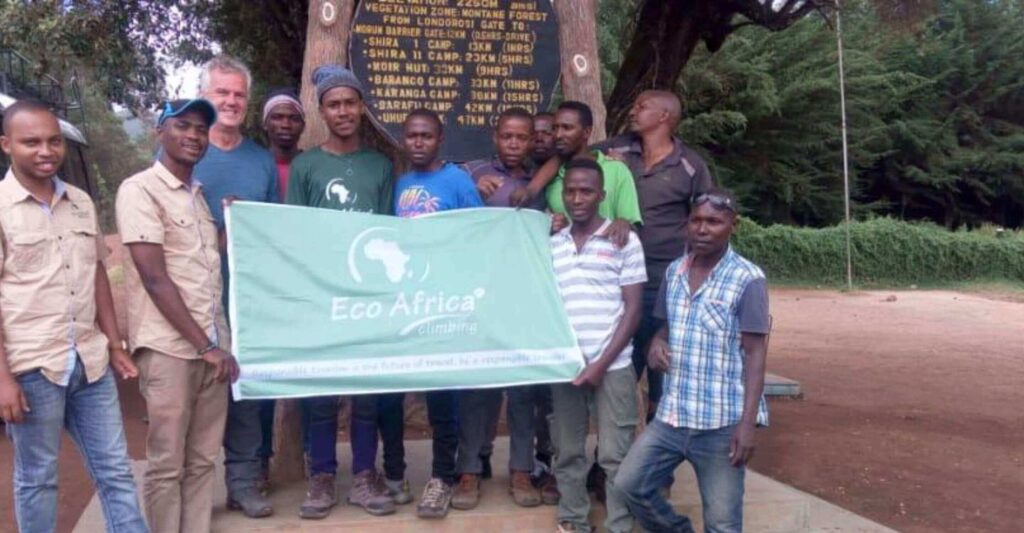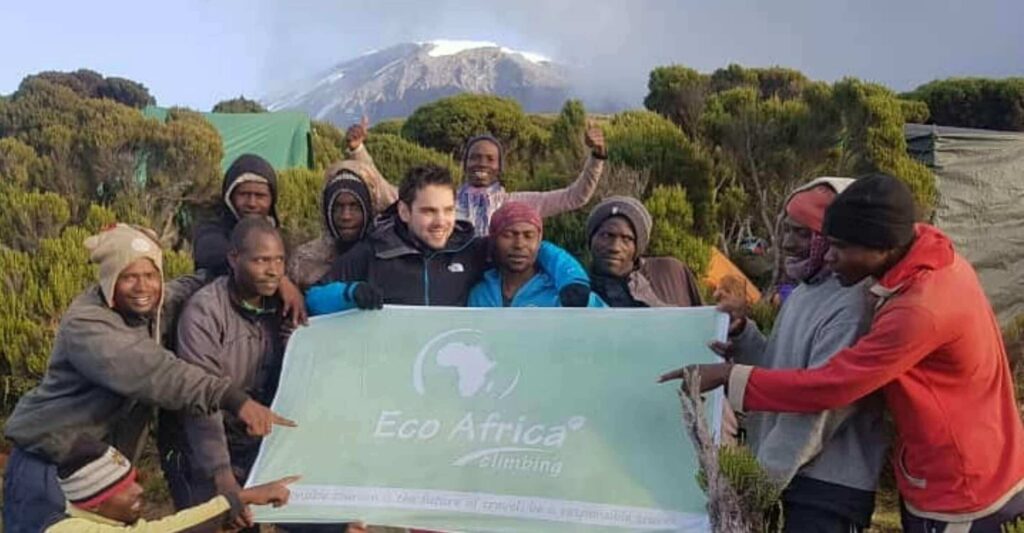KILIMANJARO CLIMBING DAILY ROUTINE
What does a typical day look like on Kilimanjaro?
In the mornings on Kilimanjaro, you can expect to be roused from your tent by a staff member at approximately 6:30 AM. Hot drinks will be available in the mess tent, and breakfast will be served around 7:00 AM. Before eating breakfast, it’s recommended that you pack your day pack and duffel bag and bring them outside of the tent so the porters can take down the tent.
Meals are typically served in a mess tent, but may occasionally be served outdoors if the weather permits. The dining area is equipped with chairs, tables, and dinnerware. Usually, you will start hiking around 8:00 AM while the porters remain behind to clean up the campsite and pack up the tents and equipment. Additionally, a health check is performed in the morning.
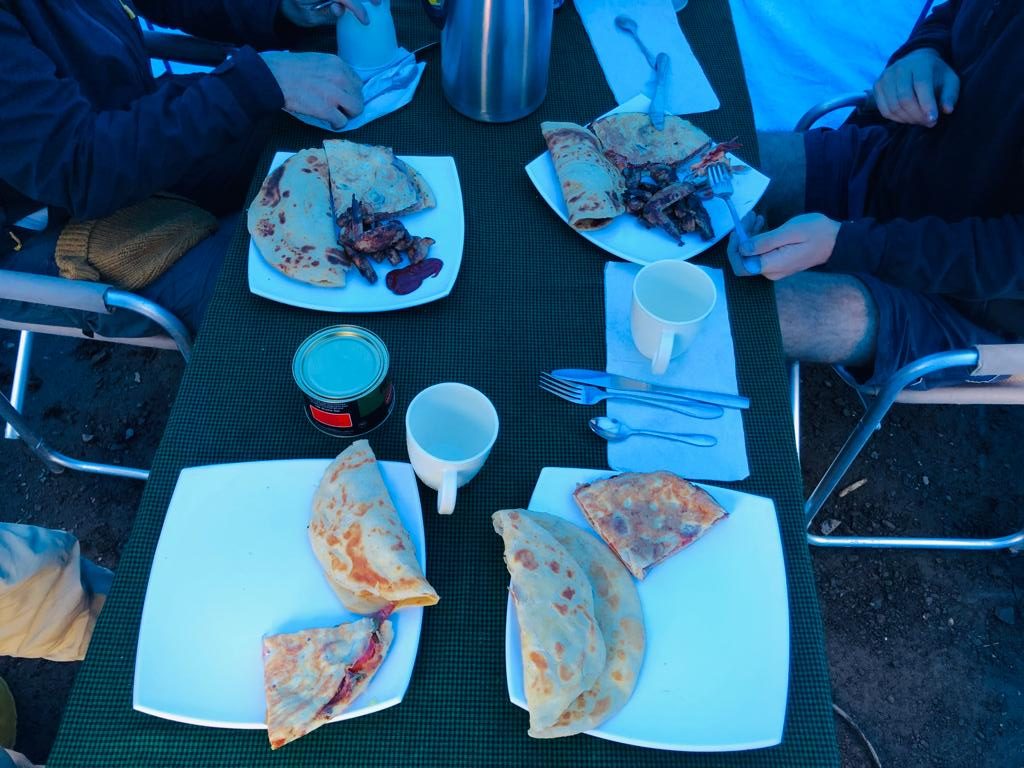
During day hiking, the walking time may vary, but typically you will walk for about four to six hours a day. Some days may have longer duration routes or acclimatization hikes. The guide will set the pace and determine when to take a break, usually once every hour. The pace is leisurely to give everyone the best chance to acclimate to the increasing altitude.
It is common for clients to worry about being too slow and lagging behind the guide and group, but this concern is unnecessary. The guides set a pace that allows for proper acclimatization, and people who are turned around on the mountain usually do so due to altitude sickness, not physical exhaustion.
While hiking, the porters move ahead of the group to prepare food, collect water, and set up tents so that everything is ready when the party arrives. Lunch may be served partway through the day’s trek on some days, while on other days, it is served after arriving at the campsite.
Evenings on Kilimanjaro
After arriving at the campsite, snacks are provided followed by dinner at around 6:00 PM. A health check is conducted in the evening as well. The guide will then brief the group on the next day’s itinerary after dinner. In your downtime, you can socialize with other climbers, staff and fellow campers, read or simply relax.
This is the typical routine for most days on the mountain and it should become familiar after a few days. Our aim is to make the schedule easy to follow and not too strenuous so that you feel strong and well-rested. We want your experience to be enjoyable and not feel like a laborious task.
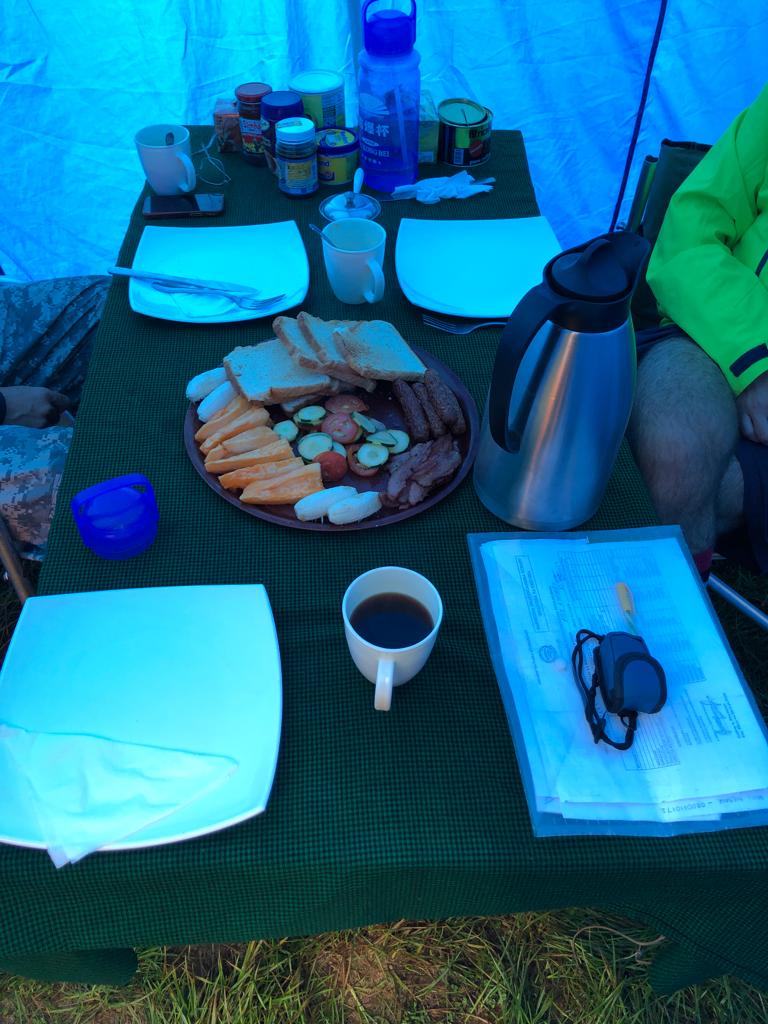
The schedule for summit day is a challenging 10 to 14-hour trek. The goal is to reach Uhuru Point at sunrise, which means climbers must begin early. The night before, climbers eat an early dinner and then go to bed in preparation for the summit attempt. They are awoken around midnight to start the ascent, after a light snack or quick breakfast. Climbing in the darkness, cold, and wind is difficult, particularly on steep slopes and loose rocks. It is a true test of physical strength and mental toughness.
Our team of Eco-africa climbing guides will support you every step of the way. Short breaks, lasting less than ten minutes, are taken for a snack and drink to keep climbers energized and hydrated. The guides will check regularly to ensure everyone is feeling well and offer help to those who need it.
If someone is unable to continue due to altitude sickness, exhaustion, or any other issue, they can turn around with one of the staff members, while the lead guide takes the rest of the group onward. The remaining climbers continue their ascent as planned, and the affected party is not impacted.
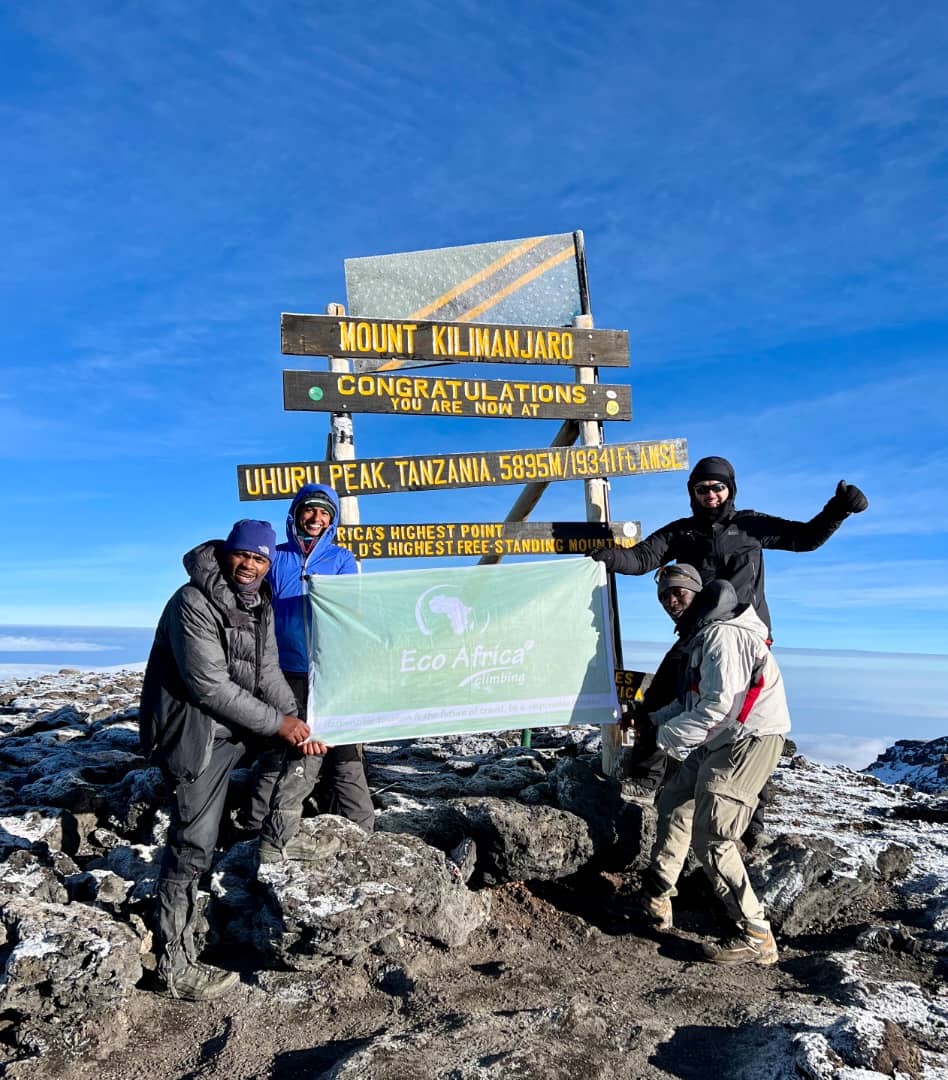
After successfully reaching the summit, you will have the opportunity to celebrate and take photos before making your way back to either Barafu or Kibo Hut, which serve as high camps. Once there, you can enjoy a well-deserved lunch and rest up before beginning the descent to a lower camp.
Many climbers find that the long descent after summiting can be quite tiring, as it follows a partial night’s sleep and requires a significant amount of energy after covering a particularly long distance that day. However, feeling exhausted at this stage is perfectly normal. For those who may be experiencing altitude sickness symptoms, descending to a lower elevation can help alleviate them quickly and effectively
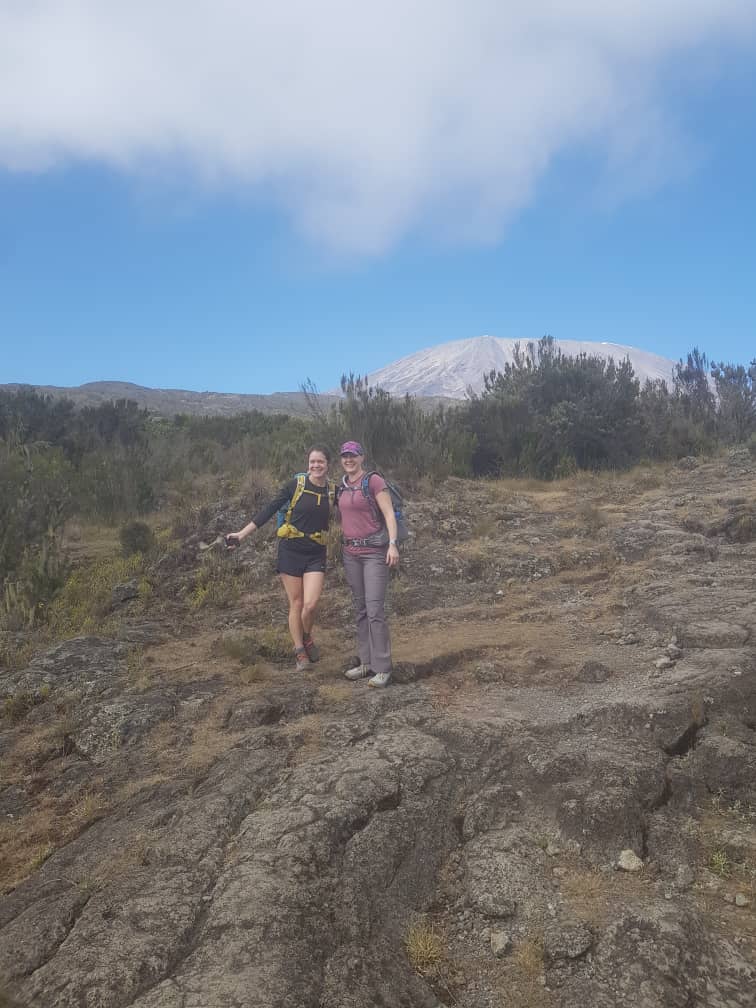
The success rate of reaching the summit is highly dependent on the duration spent on the mountain. The body gradually adjusts to high altitude, and more time increases the likelihood of successful acclimatization. It is not typically the climber’s ability to ascend, but rather how well they can acclimatize to the high altitude, that determines their chances of reaching the summit.
The day hikes on Kilimanjaro are generally not very challenging compared to other treks. However, the summit attempt is an exception as it requires an enormous amount of effort and can be difficult for almost everyone. Climbers who are able to acclimatize properly to the high altitude are more likely to reach the top.
It is unpredictable how one’s body will react to high altitude. While physical fitness and good health can be advantageous, they do not guarantee acclimatization ability. Therefore, we recommend spending at least 7 days on the mountain and adhering to our acclimatization guidelines to increase your chances of success.
Our Top Recommended Ethical Kilimanjaro Climbs
Ethical Kilimanjaro via Northern Circuit Route 9 Days
The Northern Circuit route is one of the best routes on Kilimanjaro.The route approaches Mount Kilimanjaro from the west….
From USD $3250
Ethical Kilimanjaro via Lemosho Route 8 Days
The Lemosho route is one of the newer routes on the mountain and a superb choice for your climb, It is our preferred route…
From USD $2950
Ethical Kilimanjaro via Machame Route 7 Days
Machame (“Whiskey”) Route is also known as the “Whiskey” route, the Machame route is now the most popular route on the …
From USD $2650
